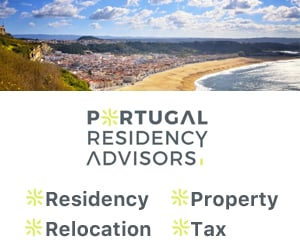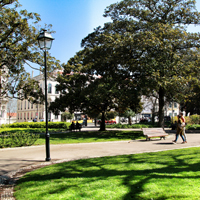Faro, Portugal
Last updated on Apr 08, 2025
Summary: Expats, digital nomads and retirees talk about what it is really like living in Faro, Portugal. They offer advice about meeting people, cost of living, finding a home and more.
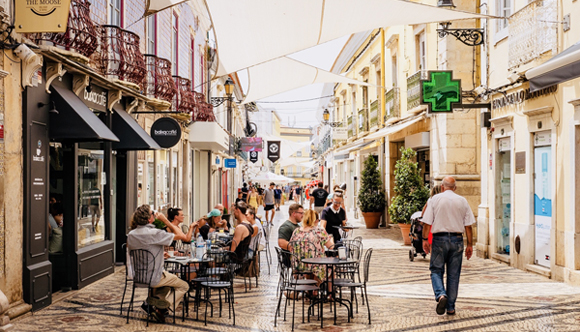
What do I need to know about living in Faro?
When we asked people what advice they would give someone preparing to move to Faro, they said:
"Expats considering retirement in Faro should be aware of several key factors. Firstly, the cost of living in Faro is relatively low compared to other European cities, making it an attractive option for retirees. However, it's important to have a clear understanding of your financial situation and budget before making the move. The official language in Faro is Portuguese, so learning the basics of the language will be beneficial, although English is widely spoken in tourist areas. The healthcare system in Portugal is of a high standard, with both public and private options available. Expats are eligible for public healthcare if they are residents and contribute to the social security system. Faro has a Mediterranean climate, with hot summers and mild winters, which may be a significant change for those used to cooler climates. The city is known for its rich history, beautiful beaches, and golf courses, offering plenty of activities for retirees. Portugal has a favorable tax regime for foreign retirees, known as the Non-Habitual Resident (NHR) scheme. This allows for a tax exemption on foreign income, including pensions, for a period of ten years. However, it's recommended to seek advice from a tax consultant before moving. When it comes to housing, there are various options available, from renting an apartment to buying a villa. It's advisable to spend some time in Faro before deciding where to live, to get a feel for the different neighborhoods. Finally, it's important to understand the visa requirements for living in Portugal. Non-EU citizens will need to apply for a residence visa before they move, while EU citizens have the right to reside in Portugal, but must register their residence after three months," wrote one member in Faro.
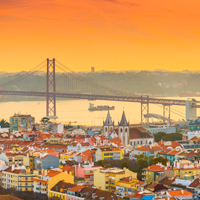 Portugal Residency Advisors
Portugal Residency AdvisorsConnect
Portugal Residency Advisors is a full-service consulting firm dedicated to providing personalized services to individuals and families seeking to relocate to Portugal. With a team of experienced professionals and strategic partnerships, we are well-positioned to assist clients with all aspects of the relocation process.
Click connect to have our partner contact you via e-mail and/or phone.
 Portugal Residency Advisors
Portugal Residency AdvisorsPortugal Residency Advisors is a full-service consulting firm dedicated to providing personalized services to individuals and families seeking to relocate to Portugal. With a team of experienced professionals and strategic partnerships, we are well-positioned to assist clients with all aspects of the relocation process.
Connect
Click connect to have our partner contact you via e-mail and/or phone.
What do I need to know before moving to Faro?
When we asked people what advice they would give someone preparing to move to Faro, they said:
"Faro is a popular destination for expats due to its warm climate, beautiful beaches, and rich history. Before moving to Faro, it's important to understand the cost of living, which is generally lower than in many other European countries, but can vary depending on your lifestyle and where you choose to live in the city. Portuguese is the official language of Faro, so learning some basic phrases can be very helpful. However, English is widely spoken in tourist areas and by younger generations. Faro has a Mediterranean climate with hot summers and mild winters. It's important to prepare for the heat, especially if you're not used to such climates. The healthcare system in Portugal is of a high standard. Expats living in Faro can access both public and private healthcare, although many choose private health insurance for more comprehensive coverage. Faro is a safe city with a low crime rate. However, like any other place, it's important to take basic precautions to protect yourself and your belongings. Public transportation in Faro is reliable and affordable. The city has a good network of buses and trains, and it's also easy to get around by bike or on foot. Portuguese cuisine is a highlight of living in Faro. The city is known for its fresh seafood, and the local wine is also excellent. Faro has a slower pace of life compared to many other cities. This laid-back lifestyle is one of the things that many expats love about living in Faro, but it can take some getting used to if you're from a fast-paced city. The city is also home to a number of festivals and events throughout the year, which provide great opportunities to immerse yourself in the local culture. Lastly, it's important to understand the visa requirements for living in Portugal. Non-EU citizens will generally need a residence visa to live in Faro, and the process can take some time, so it's best to start this process well in advance of your planned move," wrote a member in Faro.
How do I find a place to live in Faro?
We asked expats how they chose their neighborhood and found a place to live. They answered:
"Finding a place to live in Faro involves several steps. First, you need to determine your budget and the type of accommodation you're looking for. This could range from a small apartment to a larger house, depending on your needs and financial situation. Next, you should research the different neighborhoods in Faro to find one that suits your lifestyle and preferences. Some areas might be closer to the city center, while others might be more residential or closer to the beach. Once you have a clear idea of what you're looking for, you can start your search. There are several online platforms that list properties for rent or sale in Faro, such as Idealista, OLX, or Remax Portugal. These websites allow you to filter your search based on location, price, size, and other features. In addition to online searches, you might also want to consider hiring a real estate agent. They can provide valuable local knowledge, help negotiate prices, and guide you through the legal process of renting or buying a property in Portugal. When you find a property you're interested in, arrange a viewing. This will give you a chance to inspect the property, ask questions, and get a feel for the neighborhood. If you decide to proceed with a property, you'll need to negotiate the terms of the lease or purchase agreement. This will include the price, the length of the lease (if renting), and any other conditions. Once the terms are agreed upon, you'll need to sign a contract. If you're renting, you'll also likely need to pay a deposit. Finally, once the contract is signed and the deposit is paid, you can move into your new home in Faro. Remember to set up any necessary utilities, such as electricity, water, and internet. It's also worth noting that if you're moving to Portugal from another country, you'll need to make sure you have the right visa or residency permit to live there. You may also need to open a Portuguese bank account, especially if you're planning to work or study there," wrote one member in Faro.
What is a typical expat home or apartment like in Faro?
"A typical expat home or apartment in Faro, is often located in the city center or in the surrounding coastal areas, offering easy access to local amenities and beautiful sea views. These homes are usually modern and well-maintained, with a blend of traditional Portuguese architecture and contemporary design. They often feature spacious living areas, fully equipped kitchens, and one to three bedrooms. Many apartments also come with a balcony or terrace, perfect for enjoying the warm Portuguese weather. Some expat homes may also have a small garden or patio area. For those living in apartments, there are usually shared facilities like a swimming pool, gym, or communal garden. The homes are often furnished, but unfurnished options are also available for those who prefer to bring or buy their own furniture. Air conditioning and heating systems are common due to the region's hot summers and mild winters," said one expat in Faro.
What is the average cost of housing in Faro?
If you are thinking about moving to Faro, cost of living in probably a key consideration. Expats commented about the cost of housing:
"The average cost of housing in Faro can vary greatly depending on the location and size of the property. For instance, in the city center, you might expect to pay a higher price compared to the outskirts. On average, you could expect to pay around €2,500 per square meter for an apartment in the city center. However, prices can go as low as €1,700 per square meter in less central areas. For a house, prices can range from €2,000 to €3,000 per square meter. Renting a one-bedroom apartment in the city center could cost around €600 per month, while the same apartment outside the city center could cost around €500 per month. Please note that these are average prices and actual costs may vary," said one expat who made the move to Faro.
How do I meet people in Faro?
When we asked people living in Faro about club and activities where newcomers can meet others, they responded:
"Faro, offers a variety of clubs and activities for expats to join and meet new people. Many expats join language exchange clubs, where they can practice Portuguese with locals and help them with English or other languages. There are also various sports clubs, such as golf, tennis, and sailing, which are popular among the expat community. Cultural clubs are another great way to meet people and learn about Portuguese history and traditions. These clubs often organize trips to local museums, historical sites, and cultural events. Cooking clubs are also popular, where expats can learn to prepare traditional Portuguese dishes and share their own recipes from home. In addition to joining clubs, expats often meet people through volunteering. There are numerous opportunities to volunteer in Faro, from helping out at local schools to participating in environmental conservation projects. This not only allows expats to give back to their new community, but also to meet like-minded individuals. Networking events and social gatherings are also common in Faro. These events are often organized by local businesses or expat groups and provide a relaxed setting for expats to mingle and make new friends. Furthermore, many expats meet people through their children's schools. Parent-teacher associations and school events provide opportunities for parents to get to know each other. Lastly, many expats find that simply exploring their new city and striking up conversations with locals is a great way to meet people. Whether it's at a local café, park, or market, Faro's friendly and welcoming atmosphere makes it easy for expats to make new connections," wrote a member in Faro.
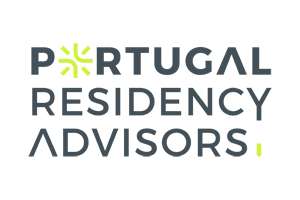
Portugal Residency Advisors is a full-service consulting firm dedicated to providing personalized services to individuals and families seeking to relocate to Portugal. With a team of experienced professionals and strategic partnerships, we are well-positioned to assist clients with all aspects of the relocation process.
Click connect to have our partner contact you via e-mail and/or phone.

Portugal Residency Advisors is a full-service consulting firm dedicated to providing personalized services to individuals and families seeking to relocate to Portugal. With a team of experienced professionals and strategic partnerships, we are well-positioned to assist clients with all aspects of the relocation process.
Click connect to have our partner contact you via e-mail and/or phone.
What should I bring when moving to Faro?
People living in Faro were asked what three things they wish they had brought and three they wish they had left behind. They wrote:
"When moving to Faro, you should pack a variety of clothing suitable for a Mediterranean climate, including lightweight clothing for the hot summers and warmer, layered clothing for the cooler winters. Don't forget to pack a good quality sunscreen, sunglasses, and a hat to protect yourself from the sun. You should also pack a swimsuit and beach towel if you plan on enjoying the beautiful beaches. Comfortable walking shoes are a must for exploring the city and surrounding areas. If you take prescription medication, ensure you have enough to last until you can arrange a new prescription in Portugal. Also, pack a basic first aid kit with band-aids, antiseptic cream, and any over-the-counter medication you regularly use. Remember to bring all necessary documents, such as your passport, visa paperwork, driver's license, and any other identification. It's also a good idea to have digital and physical copies of these documents. Pack any electronics you use daily, like your laptop, smartphone, and chargers. An adapter plug for European sockets will be necessary. If you're moving for work or study, don't forget any necessary materials like textbooks or work documents. Lastly, consider packing a few personal items to make your new place feel like home, such as photos, small keepsakes, or your favorite books," said one expat who made the move to Faro.
Where should I setup a bank account in Faro?
We asked expats in Faro what banks they use and there advice about banking. They advised:
"Expats considering retirement in Faro should be aware of several key factors. Firstly, the cost of living in Faro is relatively low compared to other European cities, making it an attractive option for retirees. However, it's important to have a clear understanding of your financial situation and budget before making the move. The official language in Faro is Portuguese, so learning the basics of the language will be beneficial, although English is widely spoken in tourist areas and by younger generations. The healthcare system in Portugal is of a high standard, with both public and private options available. Expats are eligible for public healthcare if they are residents and contribute to social security. The climate in Faro is Mediterranean, with hot summers and mild winters, which can be a significant draw for those from colder climates. The city is also known for its safety, with low crime rates compared to other European cities. Faro is rich in culture and history, with many museums, historical sites, and festivals throughout the year. The food and wine are also highlights, with a focus on fresh seafood and local produce. The process of buying property in Portugal is straightforward, but it's recommended to hire a lawyer to help navigate the legalities. It's also important to note that while Portugal has a relatively low cost of living, taxes can be high, especially for property owners. Finally, Portugal has a Golden Visa program that allows non-EU citizens to gain residency by investing in the country, which can be an attractive option for retirees. However, this program is subject to change and it's important to stay updated on the latest regulations," explained one expat living in Faro, Portugal.
Will I be able to find a job in Faro?
When we asked people about industries and career opportunities in Faro, they reponded:
"Foreigners in Faro often find employment in the tourism industry, working in hotels, restaurants, and bars. They may also work as tour guides, providing insights into the local culture and attractions. Some foreigners work in real estate, helping other expats find housing in the area. There are also opportunities in teaching, particularly for those who can teach English as a second language. Additionally, with the rise of remote work, many foreigners are able to continue their careers in fields such as tech, marketing, and finance while living in Faro," commented one expat who made the move to Faro.
What is life like in Faro?
When we asked people living in Faro what life is like and how people spend their time, they said:
"Life for expats and digital nomads in Faro is generally relaxed and enjoyable. The city offers a warm climate, beautiful beaches, and a rich history, making it an attractive destination for those looking to work remotely. The cost of living is relatively low compared to other European cities, making it an affordable option for many. The local community is friendly and welcoming, and there is a growing expat community. The city is also well-connected with reliable internet, making it easy for digital nomads to work. English is widely spoken, especially in the tourism industry, which makes it easier for expats to communicate and navigate their daily lives. Faro offers a variety of leisure activities, from exploring the historic old town to enjoying the local cuisine. The city is also known for its vibrant nightlife, with numerous bars and clubs. For those who enjoy outdoor activities, there are plenty of opportunities for hiking, biking, and water sports. Despite its many advantages, there can be challenges. Some expats may find the pace of life too slow, and the bureaucracy can be frustrating. It can also take time to adjust to the local culture and customs. However, most expats and digital nomads find that the benefits of living in Faro far outweigh these minor inconveniences," explained one expat living in Faro, Portugal.

AnchorLess provides services to help you settle into your new life in Portugal. you are guaranteed to have access to a convenient, quick and reliable service, with a team always ready to answer all of your questions about your new adventure.
Click connect to have our partner contact you via e-mail and/or phone.

AnchorLess provides services to help you settle into your new life in Portugal. you are guaranteed to have access to a convenient, quick and reliable service, with a team always ready to answer all of your questions about your new adventure.
Click connect to have our partner contact you via e-mail and/or phone.
What do expats in Faro appreciate most about the local culture?
"Expats in Faro often appreciate the relaxed and laid-back lifestyle that is a significant part of the local culture. They enjoy the warm and welcoming nature of the Portuguese people, who are known for their hospitality and friendliness. The rich history and beautiful architecture of Faro are also greatly appreciated, with many expats enjoying the opportunity to explore the city's old town and historical sites. The local cuisine is another highlight, with fresh seafood, local wines, and traditional Portuguese dishes being a favorite among expats. The local culture also places a strong emphasis on family and community, which many expats find comforting and enjoyable. The beautiful natural surroundings, including the stunning beaches and picturesque countryside, are also a big draw for expats living in Faro. Lastly, the vibrant festivals and events that take place throughout the year provide a great insight into the local culture and are something that many expats look forward to," commented one expat who made the move to Faro.
What do expats find most challenging?
"Expats in Faro often find the language barrier to be the most challenging aspect of the local culture, as Portuguese is the primary language spoken and not everyone speaks English. The slower pace of life can also be a challenge for those accustomed to a faster, more hectic lifestyle. Additionally, the Portuguese concept of time, which is more relaxed and less punctual than in some other cultures, can be difficult for expats to adjust to. Some expats may also struggle with the bureaucracy in Portugal, which can be complex and time-consuming. Lastly, while the Portuguese are generally friendly and welcoming, it can take time to form deep, meaningful friendships, which can be challenging for newcomers," remarked one expat living in Faro, Portugal.
Is there a lot of crime in Faro?
We asked people if there is a lot of crime. They answered:
"Faro, generally has a low crime rate, especially when compared to larger cities. The city is known for its safety and peaceful atmosphere. Most of the crimes reported are minor, such as pickpocketing or petty theft, particularly in tourist-heavy areas. Violent crime is relatively rare, and the city's residents and visitors generally feel safe and secure. However, like any other city, it is always advisable to take basic safety precautions, especially at night or when in less crowded areas. Overall, Faro is considered a safe city with a low level of crime," commented one expat who made the move to Faro.
Is there a lot of diversity? Are people in Faro accepting of differences?
"Faro, is a city that is known for its cultural diversity. It is home to people from various ethnic backgrounds, religions, and cultures, making it a melting pot of different traditions and customs. The city is also a popular destination for international tourists, adding to its multicultural atmosphere. People in Faro are generally accepting of differences. The city's diverse population has fostered a culture of tolerance and acceptance. Residents are typically open-minded and welcoming to people from different backgrounds. This acceptance is also reflected in the city's various cultural events and festivals, which celebrate the diversity of its population. However, like any other place, individual experiences may vary, and it's important to note that not every single person may hold these accepting views. But overall, Faro is known for its inclusive and welcoming atmosphere," commented one expat who made the move to Faro.
 Portugal Residency Advisors
Portugal Residency AdvisorsConnect
Portugal Residency Advisors is a full-service consulting firm dedicated to providing personalized services to individuals and families seeking to relocate to Portugal. With a team of experienced professionals and strategic partnerships, we are well-positioned to assist clients with all aspects of the relocation process.
Click connect to have our partner contact you via e-mail and/or phone.
 Portugal Residency Advisors
Portugal Residency AdvisorsPortugal Residency Advisors is a full-service consulting firm dedicated to providing personalized services to individuals and families seeking to relocate to Portugal. With a team of experienced professionals and strategic partnerships, we are well-positioned to assist clients with all aspects of the relocation process.
Connect
Click connect to have our partner contact you via e-mail and/or phone.
What are the schools in Faro like?
"1. The International School of the Algarve (ISA) is one of the top international schools in Faro. Located in Lagoa, a short drive from Faro, ISA offers a British curriculum for students aged 3 to 18. The school is known for its small class sizes, personalized learning approach, and strong emphasis on extracurricular activities. More information can be found on their website: [https://www.internationalschoolalgarve.com/](https://www.internationalschoolalgarve.com/) 2. Nobel International School Algarve is another highly regarded international school in the Faro region. Located in Lagoa and Almancil, the school offers both British and Portuguese curricula for students aged 3 to 18. Nobel International School Algarve is known for its strong academic record, diverse student body, and wide range of extracurricular activities. More information can be found on their website: [https://nobelalgarve.com/](https://nobelalgarve.com/) 3. Vale Verde International School is a bilingual school located in Lagos, a short drive from Faro. The school offers a British curriculum for students aged 3 to 18, with Portuguese language and culture integrated into the curriculum. Vale Verde International School is known for its small class sizes, personalized learning approach, and strong emphasis on environmental sustainability. More information can be found on their website: [https://www.vvis.org/](https://www.vvis.org/) 4. Eupheus International School is a bilingual school located in Loulé, near Faro. The school offers a British curriculum for students aged 3 to 18, with Portuguese language and culture integrated into the curriculum. Eupheus International School is known for its innovative teaching methods, strong academic record, and commitment to fostering global citizenship. More information can be found on their website: [https://www.eupheus.pt/](https://www.eupheus.pt/) 5. Colégio Bernardette Romeira is a bilingual school located in Olhão, near Faro. The school offers a Portuguese curriculum for students aged 3 to 18, with English language integrated into the curriculum from an early age. Colégio Bernardette Romeira is known for its strong academic record, diverse student body, and wide range of extracurricular activities. More information can be found on their website: [https://www.colegiobernardetteromeira.pt/](https://www.colegiobernardetteromeira.pt/)," remarked one expat living in Faro with children attending .
About the Author
 Betsy Burlingame is one of the founders of Digital Nomad Exchange and the Founder and President of Expat Exchange. She launched Expat Exchange in 1997 as her Master's thesis project at NYU. Prior to Expat Exchange and Digital Nomad Exchange, Betsy worked at AT&T in International
and Mass Market Marketing. She graduated from Ohio Wesleyan University
with a BA in International Business and German.
Betsy Burlingame is one of the founders of Digital Nomad Exchange and the Founder and President of Expat Exchange. She launched Expat Exchange in 1997 as her Master's thesis project at NYU. Prior to Expat Exchange and Digital Nomad Exchange, Betsy worked at AT&T in International
and Mass Market Marketing. She graduated from Ohio Wesleyan University
with a BA in International Business and German.
Some of Betsy's articles include 12 Best Places to Live in Portugal, 7 Best Places to Live in Panama and 12 Things to Know Before Moving to the Dominican Republic. Betsy loves to travel and spend time with her family. Connect with Betsy on LinkedIn.

Let Portugal Residency Advisors help you with your move.
Learn More
![]() Portugal Forum
Portugal Forum
Talk with other digital nomads and expats in Portugal on our Portugal forum - meet people, get advice and help others.
![]() Contribute
Contribute
Help others in Portugal by answering questions about the challenges and adventures of living in Portugal.
Digital Nomads in Portugal offer advice about healthcare, hospital visits, emergency rooms visits, finding a doctor and buying health insurance in Portugal.


